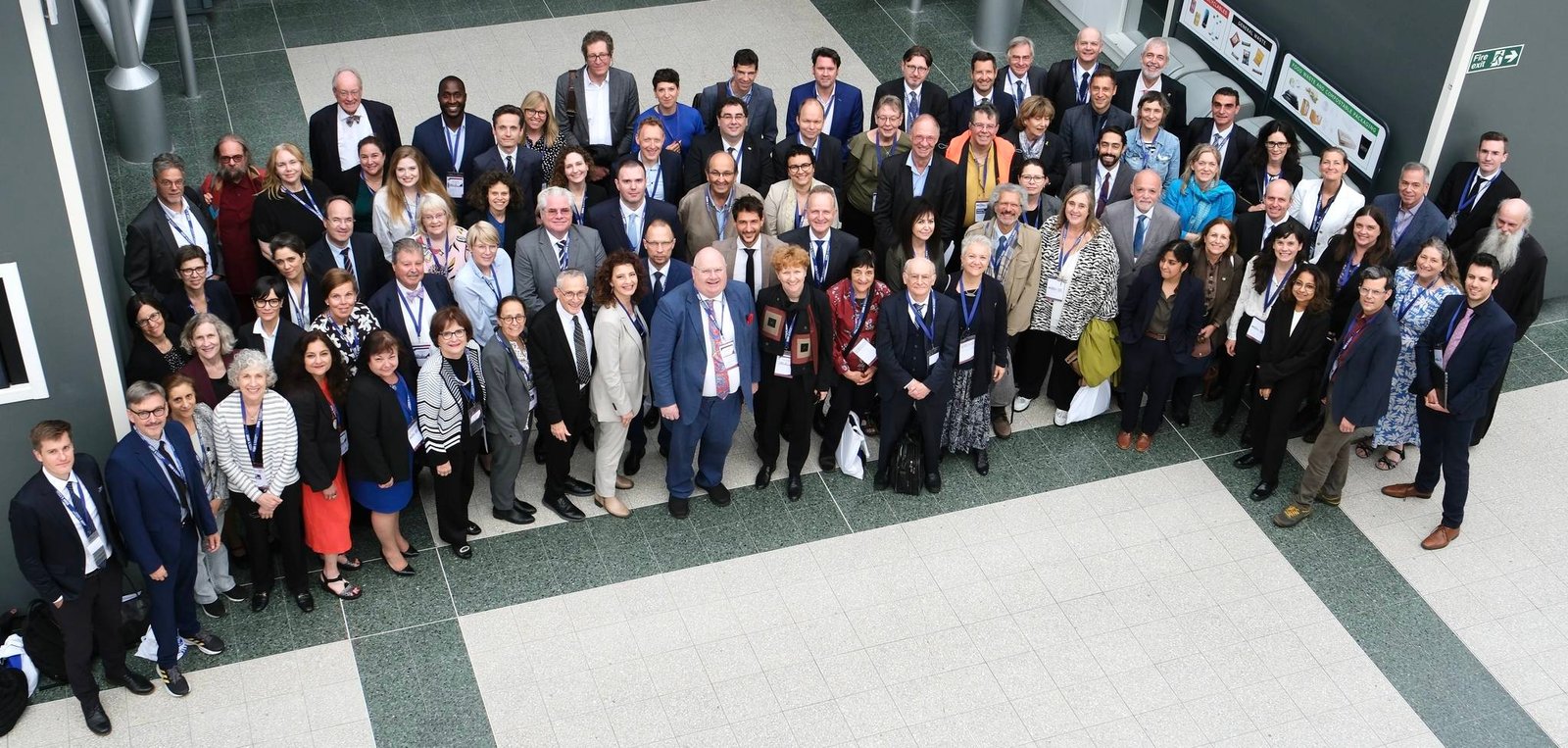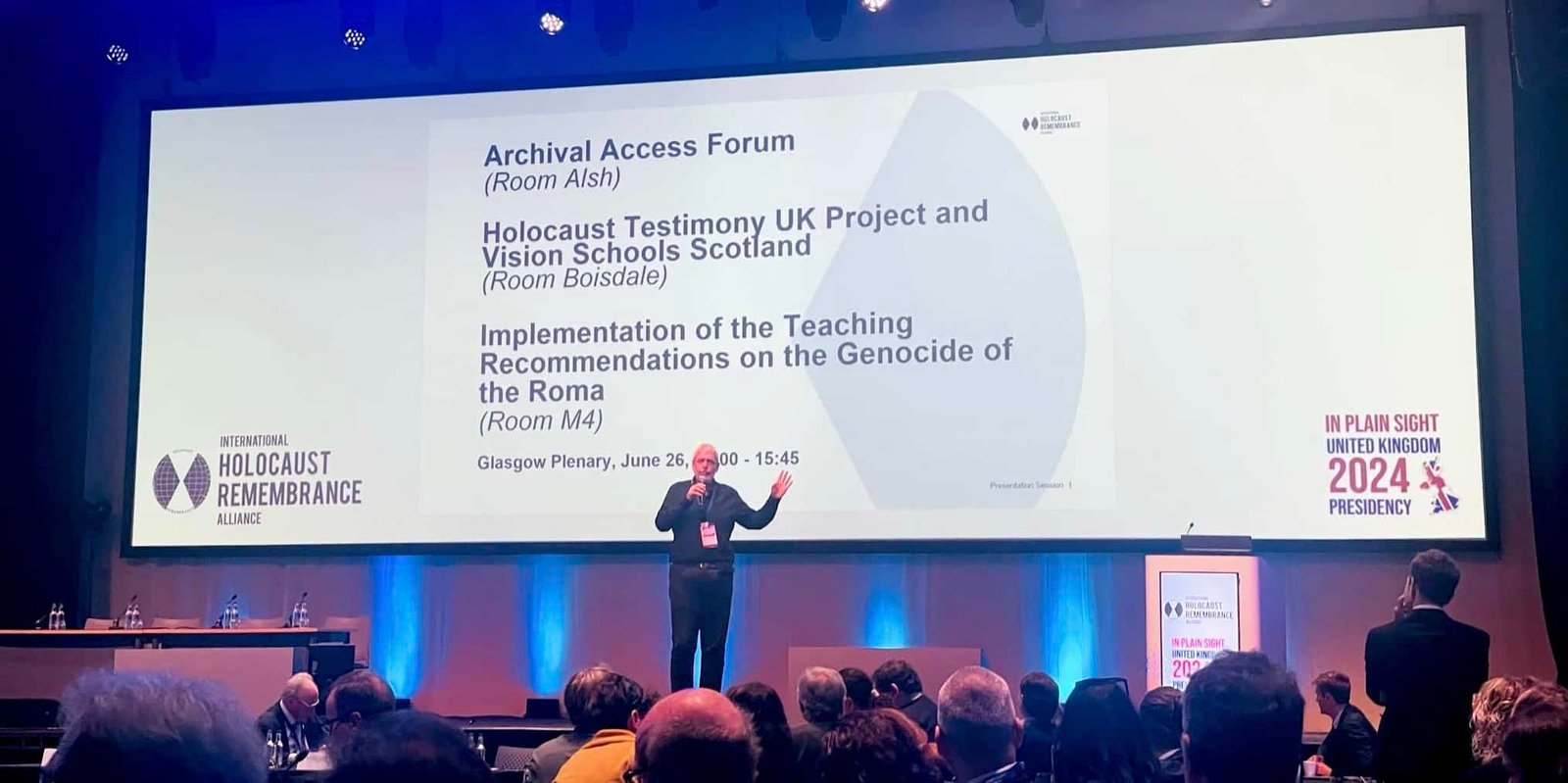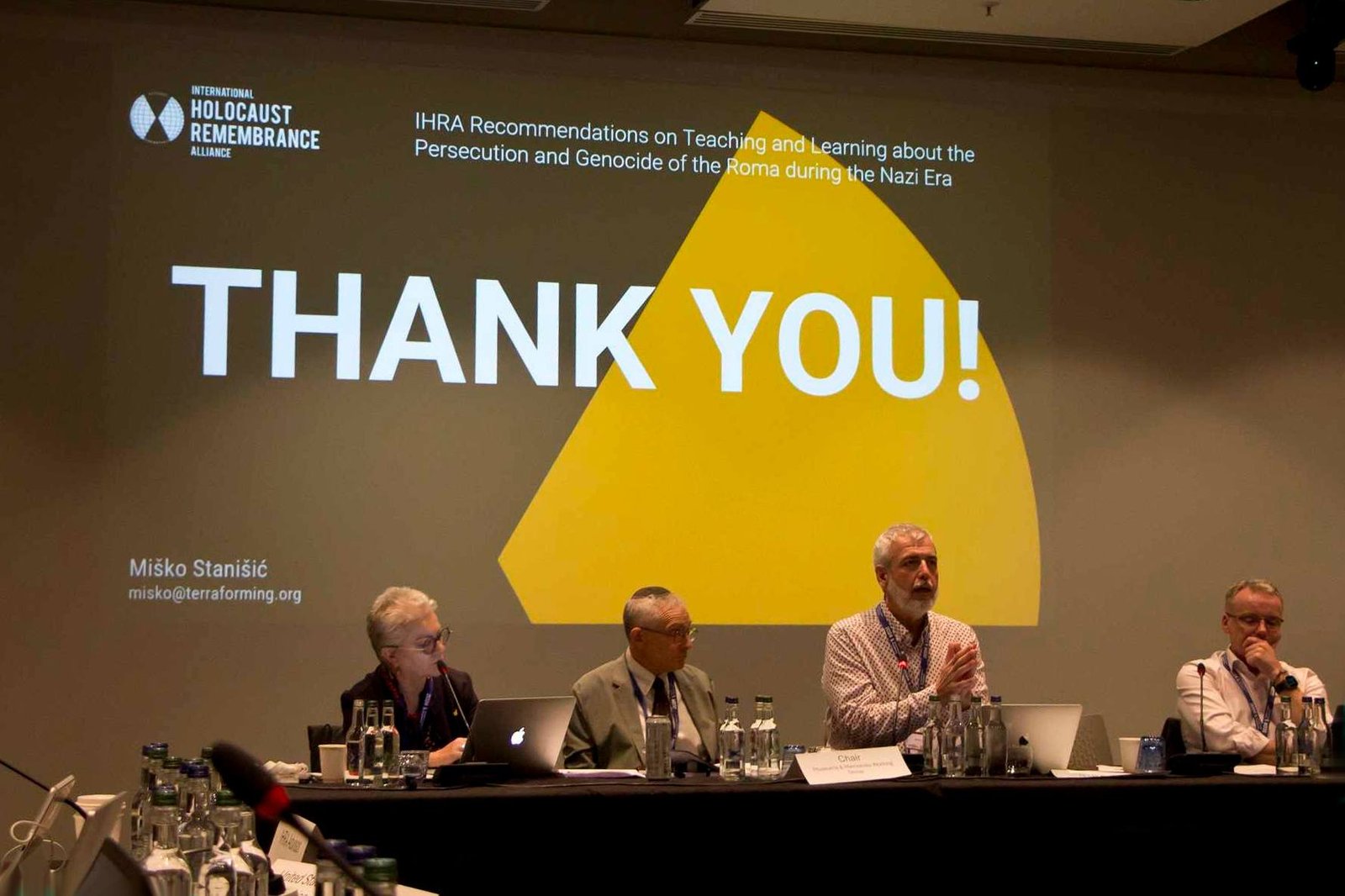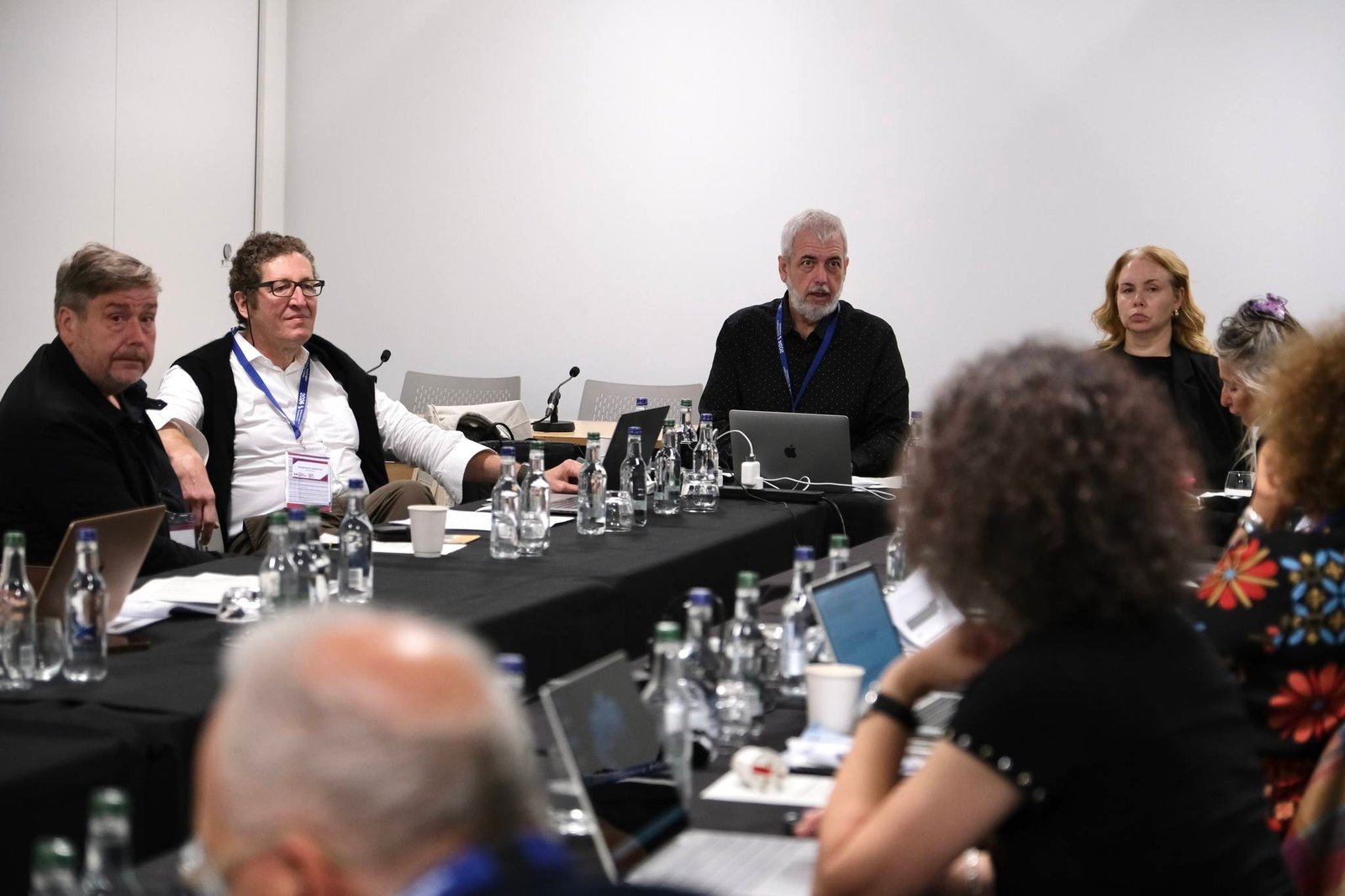The delegation of the Republic of Serbia to IHRA
Nevena Bajalica and Miško Stanišić, representatives of Terraforming in the delegation of the Republic of Serbia to IHRA, spent five intensive working days in Glasgow at the annual meeting of the International Holocaust Remembrance Alliance IHRA under the UK presidency.
Special attention was paid to the new reality when it comes to countering antisemitism and the challenges to Holocaust memorialization brought by artificial intelligence AI.
The Conference on Holocaust Education by the University of the West of Scotland and the Vission Schools
Misko Stanišić had a particularly intense engagement in Glasgow. On Sunday, the day before the official start of the session, at the invitation of the British IHRA Presidency, he participated in the Conference on Holocaust Education organized by the University of the West of Scotland and the Vission Schools Scotland. He lectured on a unique approach to teaching and learning about the persecution of the Roma through educational graphic novels.
Presentations in the IHRA Working Groups and Committees
As the chairman of the IHRA project team working on the development of the Recommendations for Teaching and Learning about the Persecution and Genocide of the Roma during the Nazi Era, during the first three days of the IHRA meeting, Miško gave presentations in the IHRA Working Group on Education, the Working Group on Memorials and Museums, the Academic Working Group, as well as in the IHRA Committee on Genocide against the Roma. He presented the results of the two-year work of the IHRA expert group and discussed various aspects, questions, and challenges related to education about the persecution of the Roma. On Wednesday, he also held a workshop for IHRA delegates, heads of national delegations, and high representatives of UNESCO and the United Nations on overcoming obstacles in implementing the Recommendations.
The meetings of the IHRA project expert team
On Tuesday and Wednesday, Miško, together with his colleague from the Canadian delegation, Nina Krieger, executive director of the Vancouver Holocaust Education Center, chaired the meetings of the IHRA project expert team for the development of the Recommendations for Teaching and Learning about the Persecution and Genocide of the Roma during the Nazi Era. Senior IHRA officials and representatives of the Council of Europe also actively participated in the meetings.
During the plenary session in Glasgow, the heads of numerous national delegations, including the Head of the Delegation of the Republic of Serbia, praised the work of the expert team and pointed out the exceptional importance of the Recommendations, the implementation of which will be one of the priorities of IHRAs work in the coming years. The IHRA Recommendations for Teaching and Learning about the Persecution and Genocide of the Roma during the Nazi Era will be finalized and adopted in December at the second annual IHRA plenary in London.
UP2US: Novi Sad – Rijeka – Timisoara
In the IHRA Working Group for Education, Miško also held two presentations on regional and international projects that Terraforming has launched in the past period. Most attention grabbed the project “UP2US: Novi Sad – Rijeka – Timisoara,” which Terraforming and the Institute for Philosophy and Social Theory from Belgrade, together with partners from Serbia, Croatia, Romania, Germany, Norway, and the USA are implementing over the next three years in Novi Sad, Rijeka, and Timisoara – the three European Capitals of Culture. The Alfred Landecker Research Grant supports the project.
Breaking Into a Gallop
Also, in the IHRA Working Group for Education, Miško presented the project “Breaking Into a Gallop – An International Incubator for Rethinking and Innovation of Education about the Genocide of the Roma during the Nazi Era,” which Terraforming developed together with Centropa from Germany and partners from Romania and Ukraine.
The Archival Access Forum (AAF)
Nevena Bajalica was active in the Committee for Combating Antisemitism and the project teams “Safeguarding Sites” and “Monitoring the Access of Archival Records,” which resulted in the establishment of the Archival Access Forum (AAF). Within this forum, the IHRA member states will be able to share best practices and solve challenges related to accessing and safeguarding Holocaust archival records.
IHRA – a global authority for policies, definitions, guidelines, and standards in Holocaust remembrance
As a unique intergovernmental organization that brings together experts and representatives of governments and ministries with 35 member states, the IHRA is the most important global authority for creating international policies, definitions, guidelines, and standards in Holocaust remembrance. In cooperation with the governments of the member states and influential international organizations that have the status of permanent partners of the IHRA (UNESCO, the European Union, the Council of Europe, OSCE/ODIHR, the United Nations, the Arolsen Archives, Claims Conference, and Global Action Against Mass Atrocity Crimes GAAMAC), the International Holocaust Remembrance Alliance IHRA monitors, directs and supports the development and implementation of Holocaust research, commemoration and education policies.







